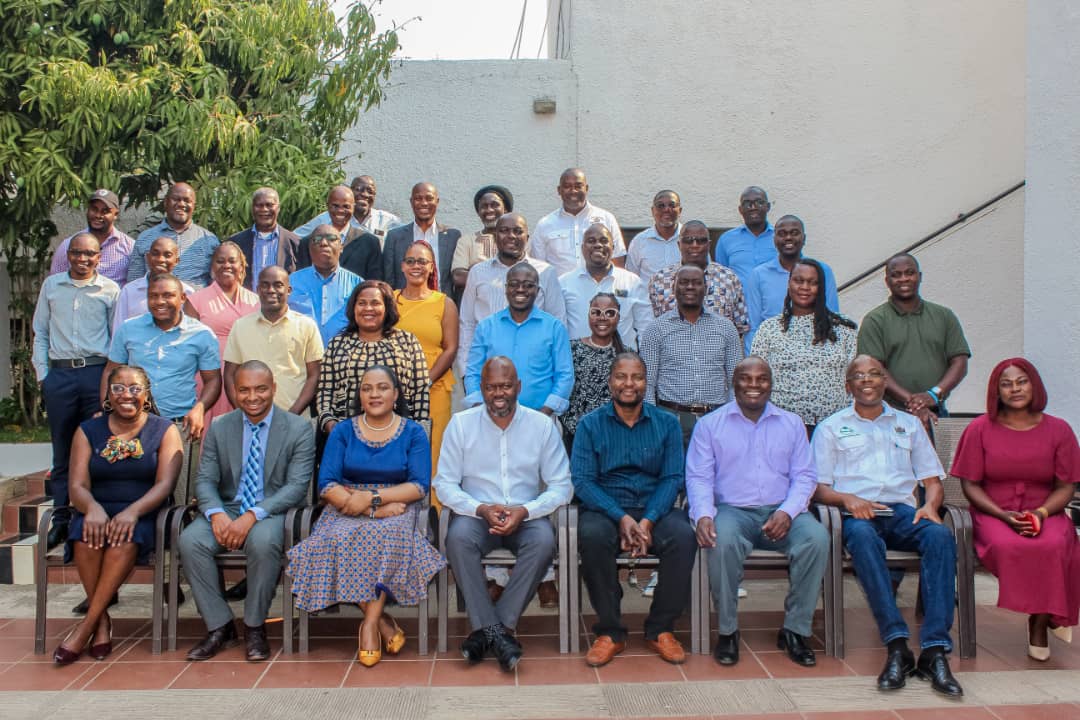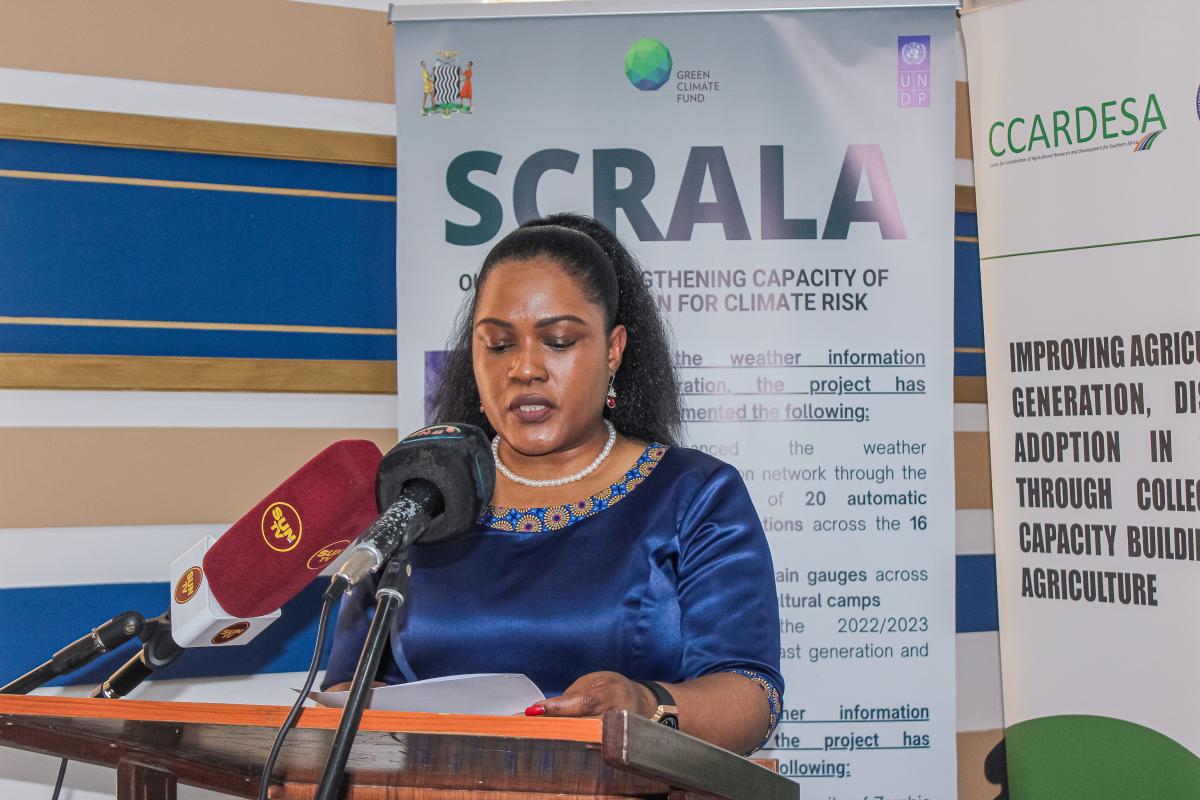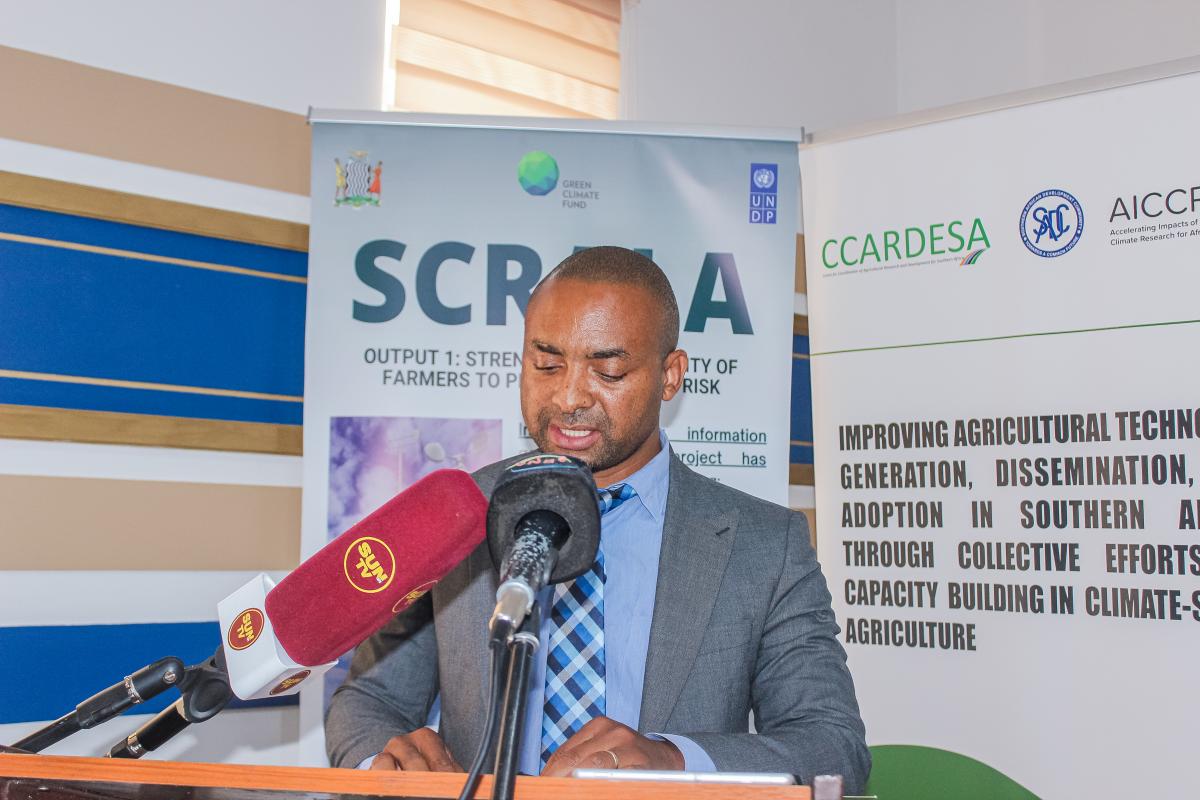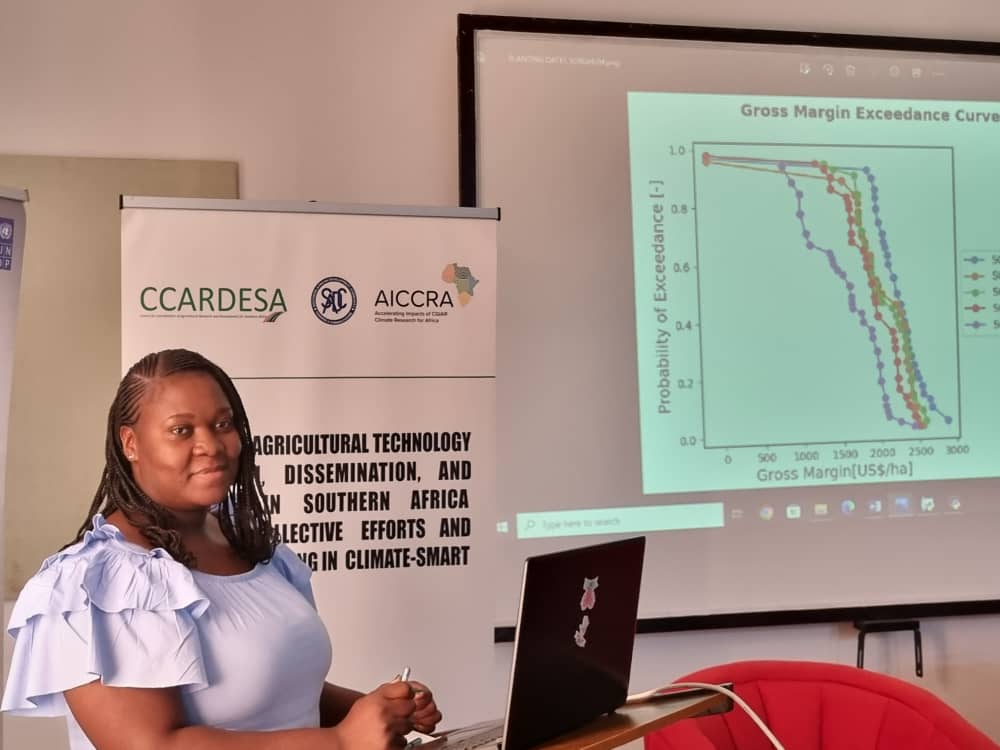CCARDESA Disseminates Crop Capability Prediction Models in Zambia

By Lonjezo Nawa
Many countries in Sub-Saharan Africa have been struggling with crop production due to climate change, which has led to a drop in crop yields and food insecurity. To address this issue, the Zambian Government partnered with the Centre for Coordination of Agricultural Research and Development for Southern Africa (CCARDESA) and the United Nations Development Programme (UNDP) to provide experts in the agriculture and meteorology fields with the necessary knowledge on how to adapt to climate change through a climate-smart modeling tool.
The goal is to build a climate-smart agriculture future by harnessing crop modeling. To achieve this, a Trainer of Trainers workshop was conducted to support participants in building their crop modeling expertise and improving the use of the tool from 19 to 22 September 2023, Livingstone, Zambia.
Zambia's farmers have been experiencing the devastating effects of changes in weather patterns, and anticipating appropriate and timely responses to climate variability and change from an agricultural perspective requires forecasting and predictive capabilities. Unfortunately, Zambia lacks these capabilities, and climate-related risks and hazards threaten food and nutrition security.
Tools like Climate-Agriculture-Modeling and Decision Tool (CAMDT) and Decision Support System for Agroecology Transfer (DSSAT) aim to facilitate translations of probabilistic Seasonal Climate Forecastings to crop responses that can help decision-makers adjust crop and water management practices that may improve outcomes given the expected climatic condition of the growing season.
During the workshop, facilitators Bradwell Garanganga and Trymore Nyakutambwa explained that crop models are scientific presentations of statistical knowledge about how a crop will grow in interaction with its environment. They enable decision-makers to make data-driven decisions by simulating possible outcomes to changes in a system and the configuration of production systems. They emphasised that modeling skills are scarce across the continent and that the training is a step toward consolidating some existing capacities in Zambia to close the food deficit gap and meet the food requirements needed.
On behalf of the CCARDESA Executive Director, Prof Cliff Dlamini, the Programme Officer Futhi Magagula gave an overview of CCARDESA. She further said that the SADC region, representing about a third of Sub-Saharan Africa’s population, has been experiencing more frequent and intense tropical cyclones, storms, and droughts in recent years.
 Ms Futhi Magagula, AICCRA Project Lead
Ms Futhi Magagula, AICCRA Project Lead
In 2021-22, Ms Magagula says six major cyclones occurred, affecting over 2.5 million people in Malawi, Madagascar, Mozambique, and Zimbabwe alone. During this period, Ms Magagula noted that climate-related shocks significantly impacted agriculture in 12 SADC member states, leaving 55.7 million food insecure. "You will agree that although most of the population in the region depends on rain-fed agriculture for food, income, and employment, it remains the dominant type of farming.
In this regard, the region requires climate-informed decision-support tools that guide adaptation measures against climate change in the agriculture sector," said Ms Magagula. She notes that climate-informed crop-predicting tools are vital to improving food systems' resilience against climate change's impacts.
Extreme weather and climate shocks have become more frequent and intense in recent years in the SADC region, causing devastating impacts on livelihoods, agriculture and food security, human settlements, and ecosystem damage. Ms. Magagula stated that the tools developed for tackling these issues are particularly important in this region. She added that the CCARDESA collaboration with the Ministry of Agriculture and UNDP will ensure that the tool has a lasting impact in Zambia and across the region.
The training provided under this project aligns with the Accelerating Impacts of CGIAR Climate Research for Africa (AICCRA) project, which aims to scale up climate information services and intelligent agriculture innovations in Africa. Ms. Magagula mentioned that CCARDESA is coordinating the implementation of the AICCRA project in Zambia.
Mr Green Mbozi, Zambia's Ministry of Agriculture permanent secretary in charge of Technical Services, said that Zambia is determined to treat Climate Change seriously to reduce poverty and achieve development objectives. Zambia has made significant progress in developing conducive policies, strategies, and institutional and analytical frameworks for Climate Change and agriculture development. Mr. Mbozi said that climate change has affected production and productivity among rainfall-dependent smallholder farmers in Zambia, reducing most of them to food insecurity after the bad season.
In Zambia, there is a shortage of crop modeling experts who can develop tailored crop advisory tools for local farmers. This gap in expertise has resulted in the formulation of ineffective policies based on generalisations. The UNDP country representative, Patrick Muchimba, said knowledge is the foundation of capacity, and greater investments should be made in establishing opportunities for continued learning. He added that through enhanced collaboration and coordination between producers and users of climate information services, the capabilities of the country's early warning system and production of Agro advisories will be improved.

Patrick Muchimba, reading the speech on behalf of the UNDP Country Representative
In this modern era, there is a need for context-specific advisories that can strengthen the resilience of agricultural livelihoods, enhance food security, and allow the Zambian Government to monitor weather changes, efficiently allocate resources, and prepare for food emergencies.
Ms. Isabel Ngabwe, a workshop participant, said that her confidence in applying models increased as she learned more about modeling. She intends to apply this knowledge immediately to make impactful contributions to the country's food and nutrition security status in the forthcoming season. Another participant, Mr. Lovis Chikopela, said he confidently leaves the workshop advising farmers in his circle of influence with services tailored to their needs. He learned that crop modeling can address many issues, and different models address different issues.

Ms. Isabel Ngabwe, a workshop participant
CCARDESA provided financial support for the training through the AICCRA project, funded by the World Bank.
The author is an award-winning Freelancer Reporter in Zambia

























































